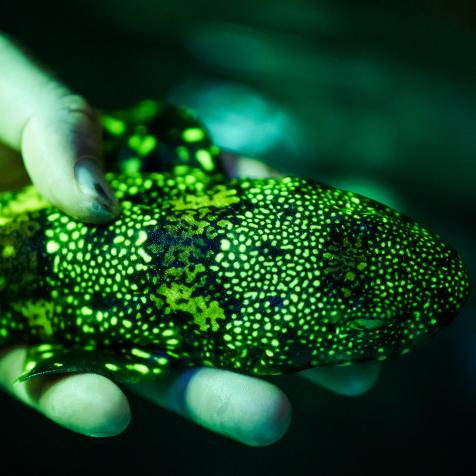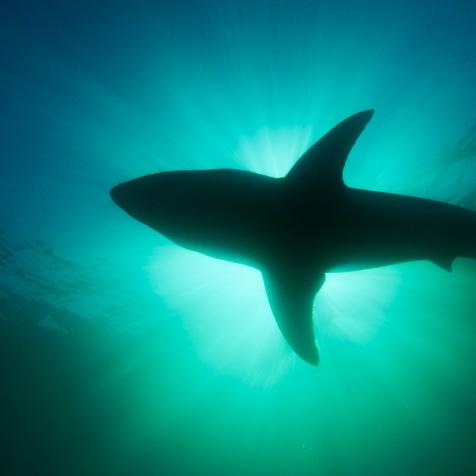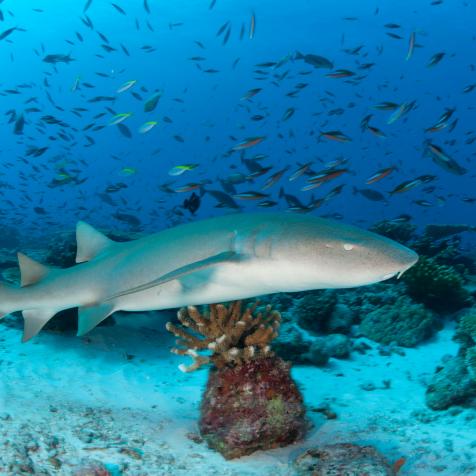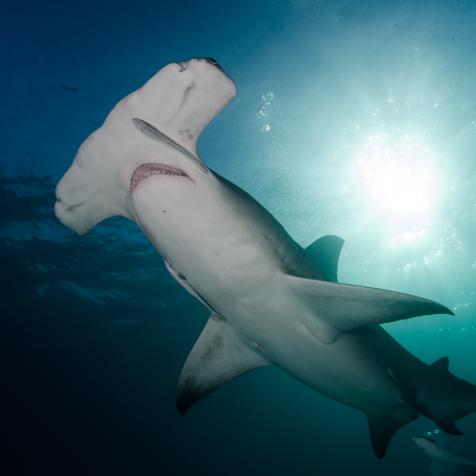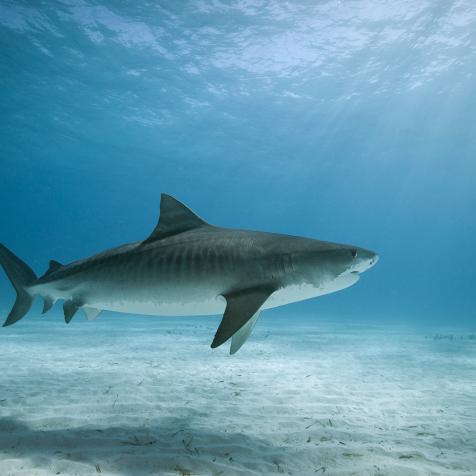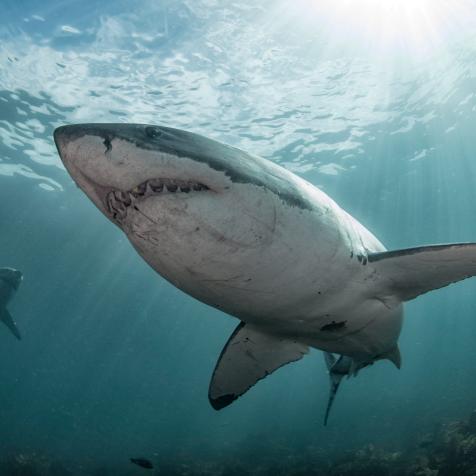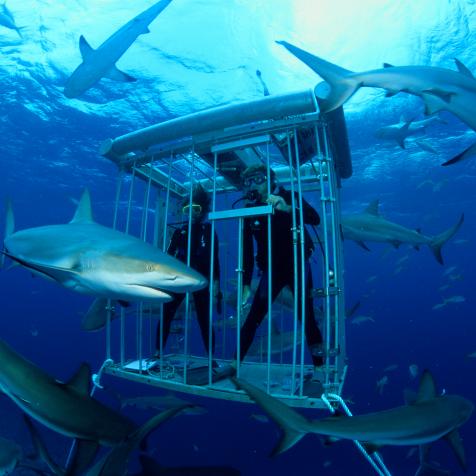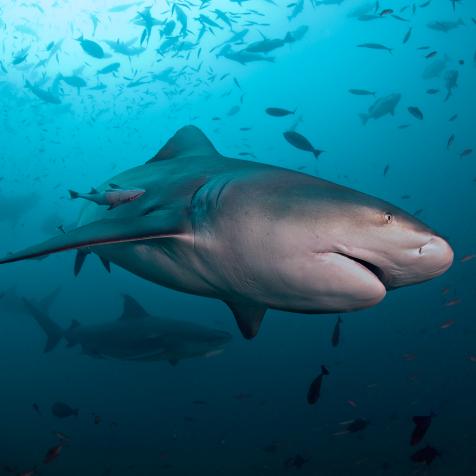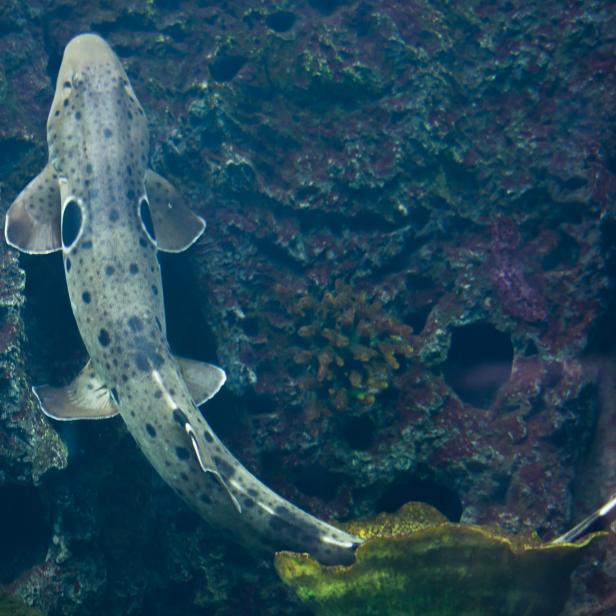
wrangel
New Walking Shark Species Discovered
A shark that walks, evolutionary conundrums, temperature changes, and tectonic shifts lead scientists to discover four new species of sharks.
Watch Island of the Walking Sharks on Wednesday, July 27 at 8:00pm ET/PT on Discovery and stream it on discovery+.
It is a happy new year for a group of scientists from across the world who have discovered four new species of sharks! And these new species of tropical sharks use their muscular fins to “walk” and forage for small fish in shallow reefs and sea grass.
“2020 is already off to a great start thanks to the discovery of four new shark species in one paper!” says marine biologist Vicky Vásquez. “When it comes to outreach, walking catsharks play double duty as representatives for the diversity in shark morphology as well as the importance of coral reef ecosystems.”
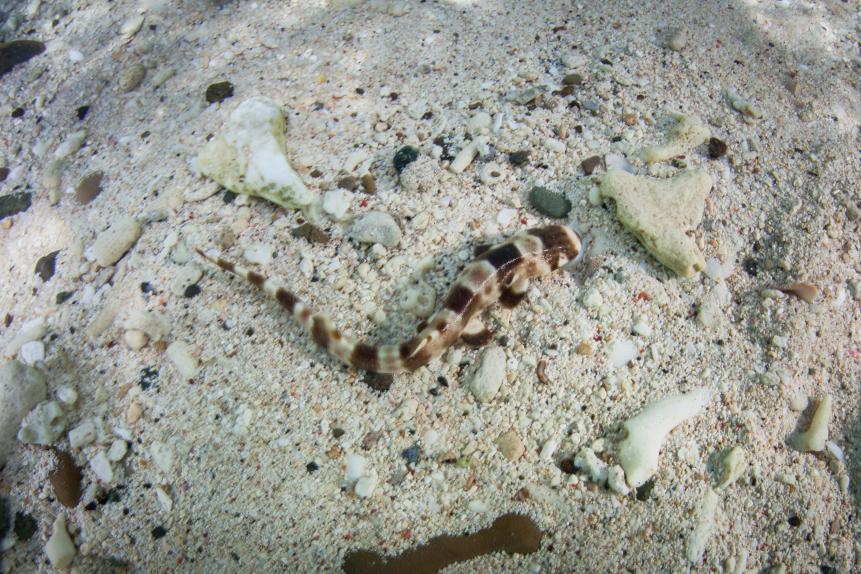
Velvetfish
A juvenile endemic Raja Epaulette shark, Hemiscyllum freycineti, walks on the sandy seafloor in Raja Ampat, Indonesia. This small elasmobranch is known as a 'walking shark' due to its behaviors.
Published in Marine and Freshwater Research is the twelve-year study of the genus Hemiscyllium and their very recent evolution, around 9 million years ago. To give it context, sharks are very old, with some form of this tough fish being on the planet as long as 450 million years ago. This makes them nearly twice the age of the oldest dinosaur fossil ever found. It is pretty special that this small shark has shown signs of evolution in only two percent of that time.
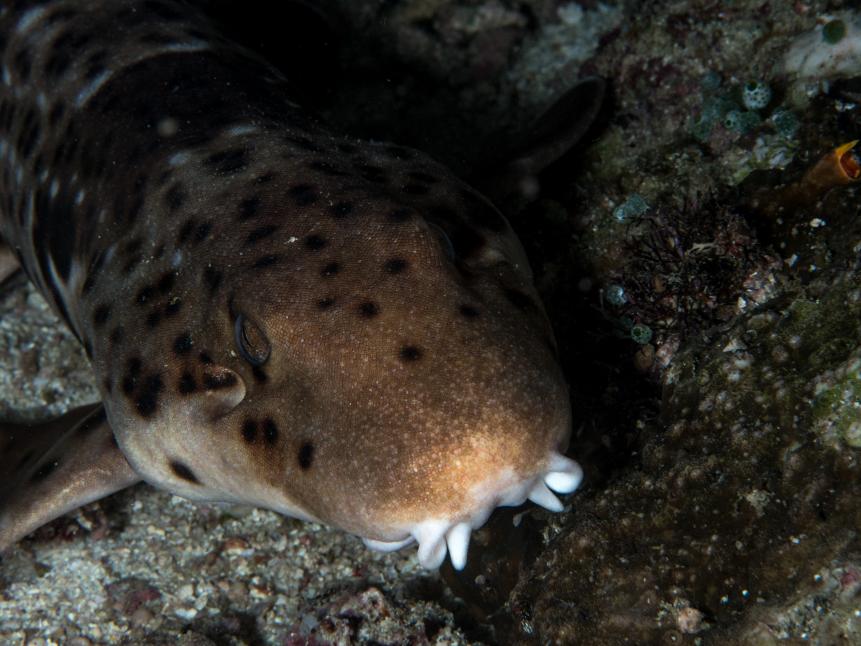
Akkarachai Ditjanapongpon
Hemiscyllium halmahera, close up shot during night dive.
The reason for the genetic change? The evolution of the walking shark from five species to nine was likely caused by the species being separated by different geographical factors over the course of millions of years. The behaviors of walking sharks are partially driven by changing sea levels and shifting landscapes (i.e. moving tectonic plates). Once sea levels rose and remperatures dropped, these walking sharks were pushed to migrate to warmer waters.
But this study is only the beginning, and it’s thought that these findings could spawn more research leading to the discovery of even more species.



































































